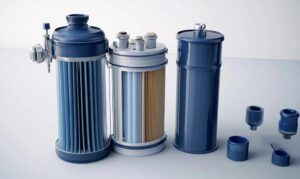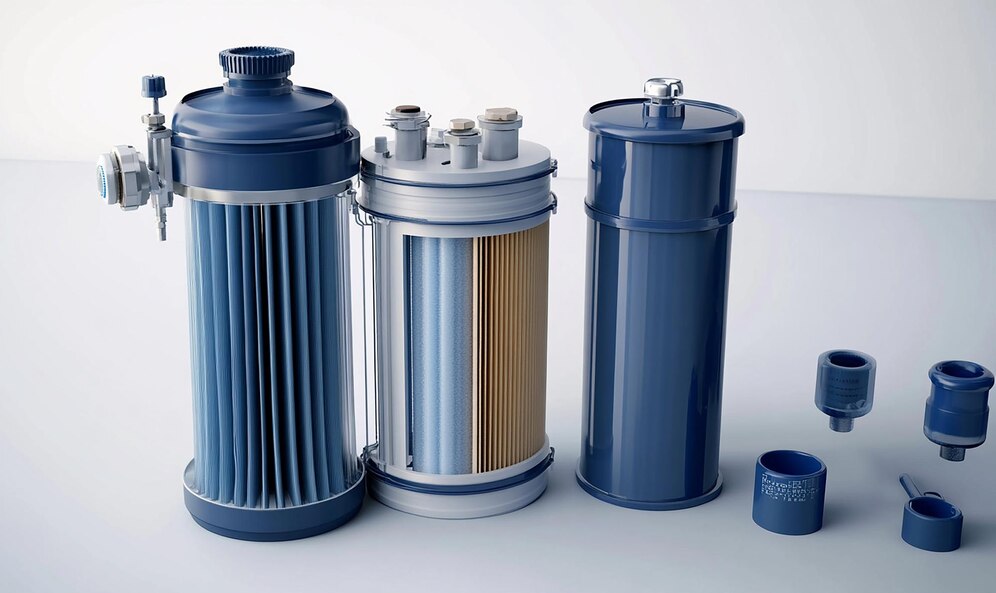When it comes to ensuring the efficiency and longevity of your compressed air system, choosing the right air filter is paramount. Compressed air filters play a crucial role in removing contaminants that can damage equipment and affect product quality. However, not all filters are created equal. In this article, we will explore how to identify low-quality compressed air filter to make an informed purchase decision.

Understanding Compressed Air Filters
Compressed air filters are essential for maintaining the quality of air in pneumatic systems. They remove dust, oil, and moisture from the air supply. Understanding the basic function and types of filters can help you discern quality when shopping.
Types of Compressed Air Filters
- Particulate Filters: These filters capture solid particles such as dust and dirt.
- Coalescing Filters: They are designed to remove water and oil aerosols, which can be particularly damaging.
- Adsorption Filters: These filters use activated carbon to eliminate vapor contaminants.
The Importance of Quality
Quality matters because a low-quality filter can lead to a host of issues, including system inefficiencies, increased maintenance costs, and potential damage to your equipment. Therefore, recognizing the signs of inferior products can save you both time and money in the long run.
Key Indicators of Low-Quality Compressed Air Filters
When shopping for compressed air filters, keep an eye out for the following indicators that may suggest poor quality.
1. Inadequate Material Construction
Low-quality filters often use subpar materials. Check the construction of the filter housing and media. A good filter should have a sturdy casing made from high-quality plastics or metals. If it feels flimsy or poorly constructed, it’s likely not worth your investment.
2. Lack of Certification
Certified filters undergo rigorous testing to meet industry standards. Look for certifications such as ISO 8573-1, which specifies the purity classes of compressed air. If the filter lacks certification, it may not effectively remove contaminants.
3. Poor Filtration Efficiency Ratings
Filtration efficiency is a key metric that determines how effectively a filter removes particles from the air. Low-quality filters often boast inflated ratings that don’t hold up under testing. Always look for independent test results or reputable reviews that provide actual efficiency ratings.
4. High Pressure Drop
A high pressure drop across the filter indicates that it’s restricting airflow too much. This can lead to increased energy costs and wear on your equipment. Always check the manufacturer’s specifications for pressure drop ratings and choose filters that maintain a low pressure drop.
5. Unclear Maintenance Guidelines
Reputable filter manufacturers provide clear maintenance schedules and guidelines. If the product does not come with explicit instructions or recommendations for changing filters, consider it a red flag.
6. No Return Policy
A good manufacturer will offer a return policy. If a company refuses returns or has a complicated return process, it could indicate they lack confidence in their product’s quality.
Researching the Manufacturer
Before making a purchase, it’s important to research the manufacturer. Here are some steps to take.
1. Check Reviews and Testimonials
Look for customer reviews and testimonials online. A company with a history of satisfied customers is likely to produce quality products. Conversely, negative reviews or complaints about filter performance should raise concerns.
2. Assess the Company’s Experience
Experience in the industry often correlates with quality. Established companies have reputations to uphold and are more likely to invest in product quality.
3. Contact Customer Service
A company’s customer service can tell you a lot about their commitment to quality. Reach out with questions regarding their products, and gauge their responsiveness and knowledge.
Common Mistakes to Avoid When Buying Compressed Air Filters
Even seasoned buyers can fall prey to common pitfalls. Here’s what to watch out for.
1. Ignoring System Compatibility
Not all filters fit every system. Ensure that the filter you choose is compatible with your existing compressed air system to avoid performance issues.
2. Focusing Solely on Price
While budget is important, focusing only on the lowest price can lead to poor choices. Often, you get what you pay for. Invest in a quality filter that ensures efficiency and longevity.
3. Underestimating Filter Life
Some buyers overlook the importance of filter life. A filter that needs frequent replacement can lead to higher overall costs. Always check the estimated lifespan of the filter.
4. Neglecting to Compare Brands
Don’t settle for the first brand you encounter. Take the time to compare different manufacturers and products. This not only gives you a better perspective on pricing but also on quality.
Maintaining Your Compressed Air Filter
Once you’ve invested in a quality compressed air filter, proper maintenance is crucial for optimal performance.
1. Regularly Inspect and Replace Filters
Set a routine for inspecting and replacing your filters according to the manufacturer’s guidelines. This will ensure your system operates efficiently and helps prevent costly repairs.
2. Monitor System Performance
Keep an eye on the performance of your compressed air system. Any significant changes could indicate filter issues or the need for replacement.
3. Document Maintenance Activities
Maintain records of inspections, replacements, and any other maintenance activities. This documentation can help with troubleshooting and ensure compliance with any operational standards.
Conclusion
Choosing the right compressed air filter is vital for maintaining system efficiency and protecting your equipment. By knowing how to spot low-quality filters, you can make informed decisions that save time, money, and hassle. From checking material construction and efficiency ratings to researching manufacturers and avoiding common pitfalls, being diligent in your approach will lead to successful purchases. By prioritizing quality, you’re investing in the longevity and performance of your compressed air system. Take the time to do your homework, and you’ll reap the benefits of a clean, efficient air supply. read more…
